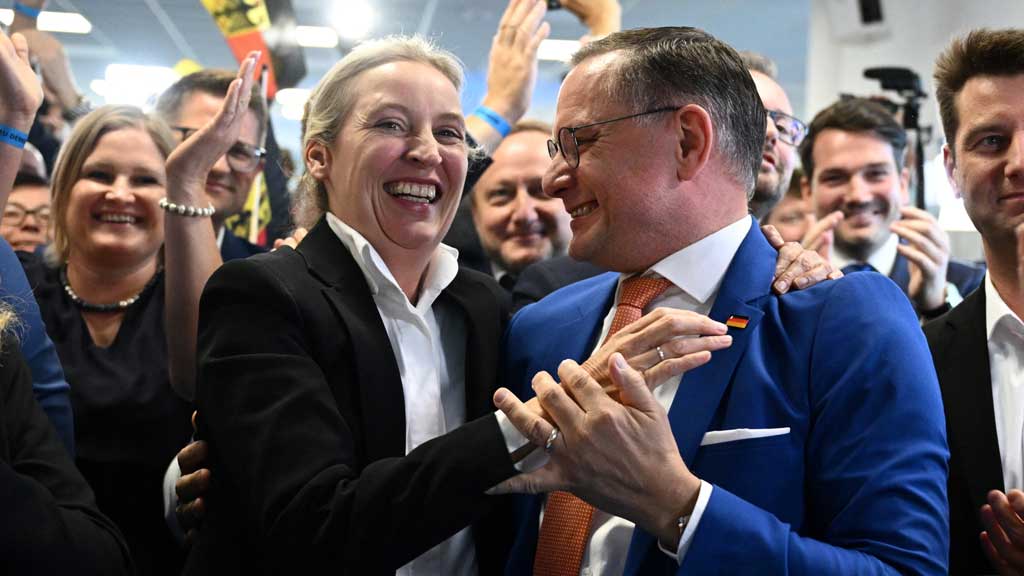DM Monitoring
BRUSSELS: Gains by the far-right in voting for the European Parliament prompted French President Emmanuel Macron to call a snap national election and added uncertainty to Europe’s future political direction.
While the centre, liberal and Socialist parties were set to retain a majority in the 720-seat parliament, the vote dealt a domestic blow to the leaders of both France and Germany, raising questions about how the European Union’s major powers can drive policy in the bloc.
Making a risky gamble to try to re-establish his authority, Macron called a parliamentary election, with the first round on June 30.
Like Macron, German Chancellor Olaf Scholz also endured a painful night where his Social Democrats scored their worst result ever, suffering at the hands of the mainstream conservatives and hard right Alternative for Germany (AfD).
Meanwhile, Italian Prime Minister Giorgia Meloni saw her position strengthened by her arch-conservative Brothers of Italy group winning the most votes, exit polls showed. A rightwards shift inside the European Parliament may make it tougher to pass new legislation that might be needed to respond to security challenges, the impact of climate change or industrial competition from China and the United States.
However, exactly how much clout the euro-sceptic nationalist parties will wield will depend on their ability to overcome their differences and work together. They are currently split between two different families, and some parties and lawmakers for now lie outside these groupings. The centre-right European People’s Party (EPP) will be the biggest political family in the new legislature, gaining five seats to field 189 deputies, a centralised exit poll showed.
In Poland, Prime Minister Donald Tusk’s centrist Civic Coalition, a member of the EPP, was set to win the European vote. In Spain as well, the centre-right People’s Party, also part of the EPP, came out on top, outperforming Socialist Prime Minister Pedro Sanchez.
Such results were good news for EPP member Ursula von der Leyen who seeks a second five-year term at the helm of the powerful EU executive arm.
The centre-left Socialists and Democrats are poised to be the second biggest political family, even as they lost four lawmakers to end up with 135, the exit poll showed.
Political observers attribute the shift to the right to the rise in the cost of living, concerns about migration and the cost of the green transition as well as the war in Ukraine — worries that nationalist and populist parties have seized on.
Eurosceptic nationalist groups ECR and Identity and Democracy (ID) and hard-right lawmakers not yet affiliated to an EU political family from Germany’s AfD secured together 146 seats, a gain of 19, the centralised exit poll showed.
The exit poll projected that pro-European centre-right, centre-left, liberal and Green parties will retain a majority of 460 seats, but one which is slimmed down compared to their 488 in the outgoing chamber of 705 deputies.
Europe’s Green parties in particular suffered heavy losses, subsiding to 53 deputies from 71 in the outgoing parliament.



